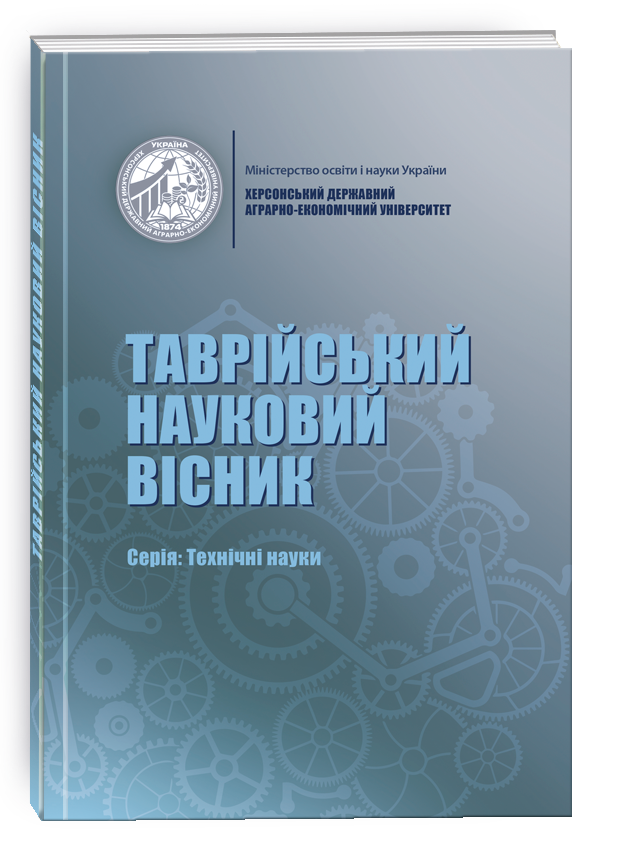AMINO ACID COMPOSITION OF MEAT RAW MATERIALS DURING LONG-TERM COLD STORAGE
DOI:
https://doi.org/10.32851/tnv-tech.2022.4.10Keywords:
cold storage, meat, amino acid, protein, freezing, beef, pork.Abstract
The results of studies on the study of changes and quantitative assessment of the content of amino acids in meat raw materials during long-term cold storage are given. At the same time, it was established that the mass fraction of protein in the studied samples of raw meat stored in industrial conditions changed slightly during the entire period of storage. The results of the research on the storage of frozen meat showed that the test samples of beef and pork at the last storage period (180 days) contained essential amino acids, i.e. were complete and had quite high indicators of biological value, close to the norm recommended by FAO/WHO. The most significant decrease in essential amino acids: methionine and cysteine was noted in beef samples. At the last stages of storage, an almost 2-fold increase in proline content was observed in both beef and pork, which may indicate a possible effect of freezing and subsequent cold storage. During refrigerated storage of frozen meat, the NAC/ZAB ratio after 6 months of storage was 1.85 and 1.68 for pork and beef, respectively, which in turn is slightly different from proteins with high biological value. The ratio of the group of essential amino acids to the group of replaceable ones (amino acid index NAK/ZAK) in the studied samples of beef and pork was 0.59...0.67 – for beef and 0.62...0.75 – for pork, respectively, which is close to the value of this indicator. recommended by FAO/WHO for a balanced diet – 0.56...0.67. The amino acid index of the ratio of essential amino acids to total amino acids for the "standard" protein has a value of 0.4, in the samples we examined it was 0.37...0.4 – for beef and 0.38...0.42 – for pork, which also shows fairly high biological value of meat after long-term storage in a frozen state. The main influence on the change of protein substances of meat and the amino acid composition associated with them is provided by the process of freezing, which results in denaturation and aggregation of proteins, further storage of meat in a frozen state has a lesser effect on the changes taking place in it.
References
Антипова Л. В. Методи дослідження м’яса і м’ясних продуктів. Київ. 2015. 378 с.
Передумови розвитку м’ясної галузі в Україні: продовольча база чи «сучасна культура споживання»? URL: http://www.atik.com.ua/index.php/ru/blogproduction-/ 2-catnews/24--l-r.html
Баль-Прилипко Л.В., Леонова Б.І., Нагорна М.Н. Сучасні технологічні особливості виробництва делікатесних м’ясних продуктів. Мясное дело. 2014. № 6-7. С. 8-10.
Жерінов А. І. Виробництво м’яса і м’ясних товарів. Київ, 2009. С. 34-41.
Приліпко Т.М. Букалова Н.В. Ветеринарно-санітарна оцінка продуктів забою тварин. Матеріали VІ Міжнар. наук.-практ. конференції «Зоотехнічна наука: історія, проблеми, перспективи». Подільський ДАТУ, 26–27 травня 2016 р. Кам’янець-Подільський, 2016. С. 254–257.
Prylipko T., Bukalova N., Lyasota V. Features of introduction of the HACCP system on enterprises of Ukraine. The potential of modern scienct. London 2019. volume 1. p.p.49-60.
Prylìpko, T.M., Prylìpko, l.V. Task and priorities of public policy of Ukraine in food safety industries and international normative legal bases of food safety. Proceedings of the International Academic Congress «European Research Area: Status, Problems and Prospects. Latvian Republic, Rīga, 01–02 September 2016. С.85-89.
Riaz, M.N., Texturized soy protein as an ingredient, in Proteins in food processing, R.Y. Yada, Editor. 2004, Woodhead Publishing Limited: Cambridge, London. p. 517–557.
Boye, J., F. Zare, and A. Pletch, Pulse proteins: Processing, characterization, functional properties and applications in food and feed. Food Research International, 2010. 43(2): p. 414-431.







